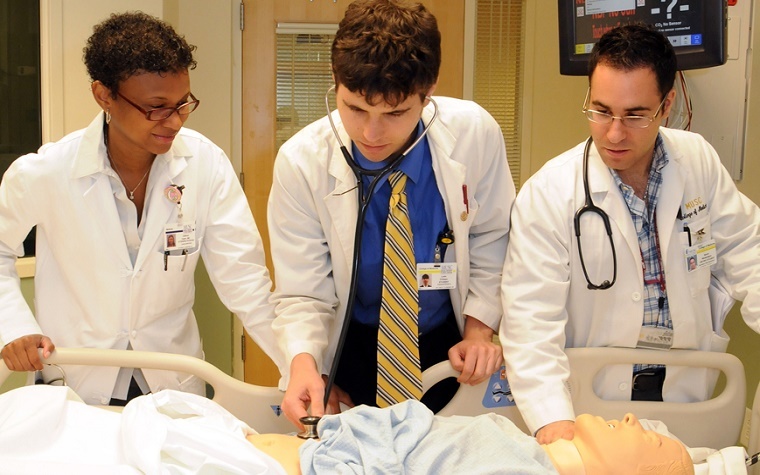
According to a recent article in the New England Journal of Medicine (NEJM), fears of a physician shortage are largely unfounded -- as there are more than enough residency spots for upcoming medical school graduates.
The article, penned by Dr. Fitzhugh Mullan, Edward Salsberg and Katie Weider, points out that creating more residency spots would require more Medicare spending for graduate medical education (GME) -- and that numbers don't justify the increase.
"Although the GME gap will narrow slowly, it appears likely that there will be ample positions for all U.S. graduates over the next decade," they said in the article. "It would seem difficult to argue that Congress should fund more GME positions in order to create a larger margin for U.S. graduates."
The article maintains that many vacant residency spots don't get filled -- and that if current trends continue, by 2024, more than 4,500 residency spots will go unfilled, because there will not be enough medical school graduates to step into them.
Having so many residency vacancies does, however, afford medical school graduates the opportunity to choose their specialties and location from a wider variety of locations. This also means international graduates are filling the less-sought-after residencies not taken by American med school grads.
The authors did agree with the American Academy of Family Physicians' (AAFP) position that more graduates are needed for the primary care field. A recent Government Accountability Office study -- available at www.gao.gov -- also backs up that assertion.
The NEJM study also points out that because funding from Medicare is drying up, hospitals are funding residencies through other funding avenues.
"Although core dependence on Medicare funding has been a hallmark of GME, the past decade has seen hospitals steadily expand entry-level residency positions despite the Medicare cap," they said in the article.
Funding sources for residencies have included Veterans Health Administration, the Patient Protection and Affordable Care Act's Primary Care Residency Expansion program and the Teaching Health Center Graduate Medical Education program. In some cases, health care facilities have funded these positions themselves.
"The primary goal of public GME support, it should be noted, is to produce trained physicians to meet the country's health care needs -- and not to fulfill the personal preferences of individual graduates for the specialties of their choice," they said.